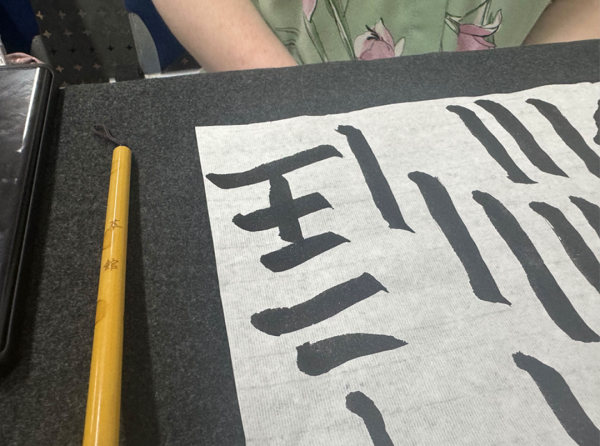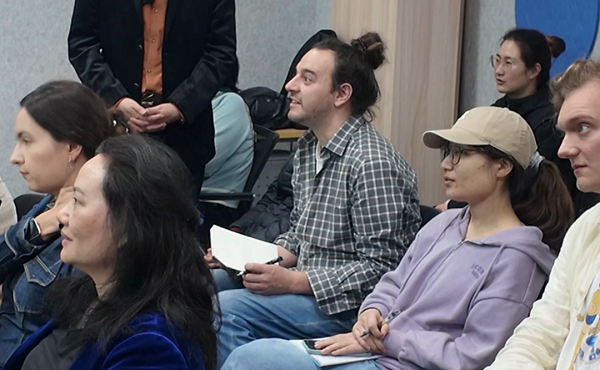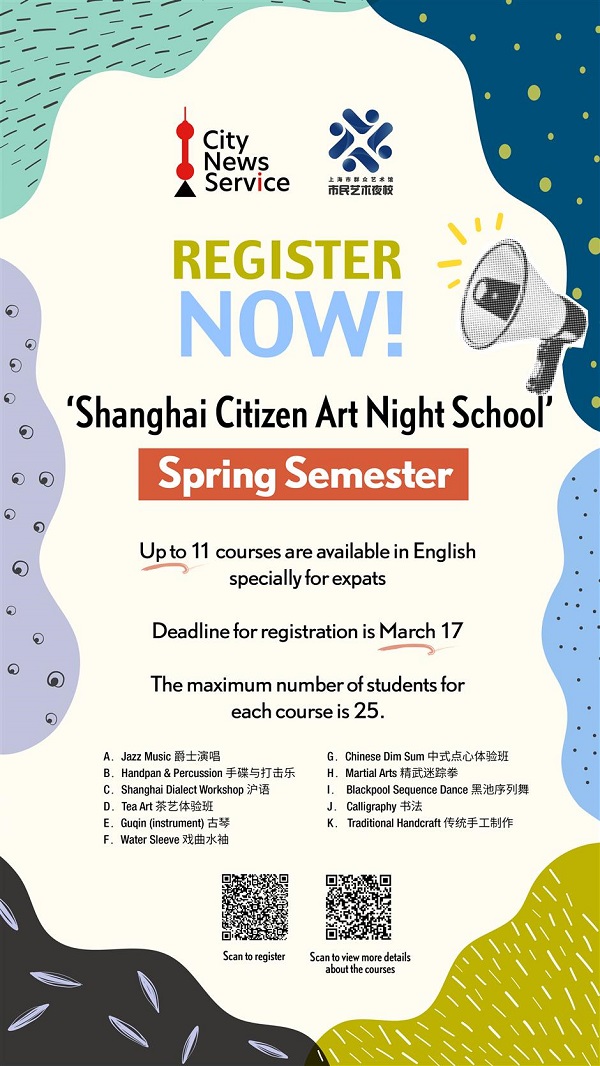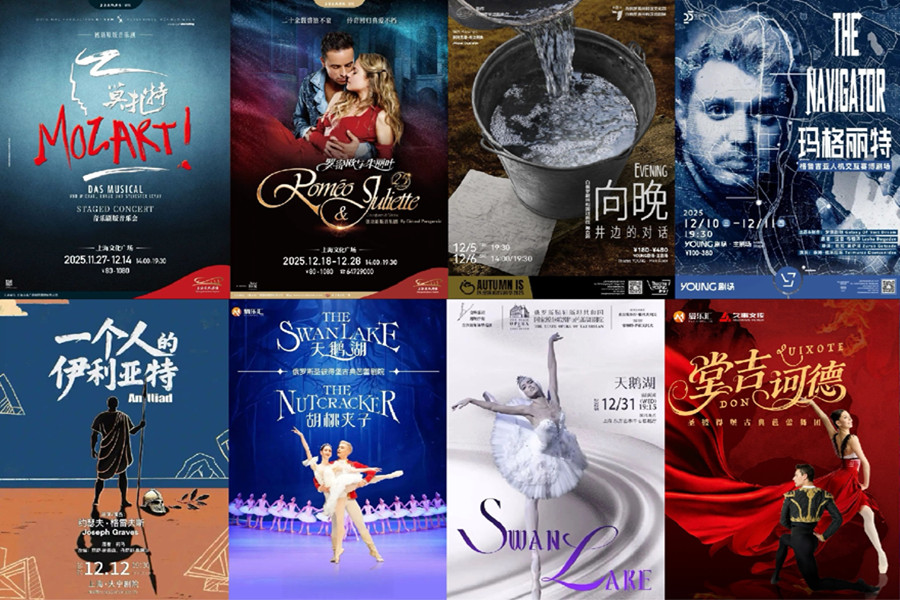Expats embrace Shanghai culture at trendy night schools
When seeking the most fashionable nightlife experience in Shanghai, the resounding answer is the Shanghai Citizen Art Night School.
Established in 2016 by the Shanghai Mass Art Center, this unique institution caters to students aged 18 to 55. Its diverse curriculum, including the Shanghai dialect and traditional calligraphic arts, has drawn a vibrant mix of participants from various countries, including the Netherlands, Germany, France, and the United Kingdom.
Expats embracing Shanghai dialect

An instructor teaches an expat Shanghai dialect. [Photo/shxwcb.com]
Several expats have shared their motivations for enrolling in the program. Nick, a 36-year-old father from the UK, aims to master Shanghai dialect to better communicate with his Chinese family and assist his young daughter in learning the local language.
"I think learning a new language gives you a new personality," Nick said.
Similarly, Nicolas, a French foreign teacher at a Shanghai middle school, hopes to converse with the city's older residents, a demographic, he observes, that typically speaks the local dialect.
"I think older generations still like to speak Shanghai dialect and I've found that only about 10 percent of my class can understand it, and most kids don't speak it now," said Nicolas.

A foreign participant whose Chinese name is Xie Anlei shows his note. [Photo/shxwcb.com]
Learning the Shanghai dialect is widely acknowledged as challenging, a sentiment echoed by many Chinese people and shared by a group of expats.
Several interviewees noted the complexity of the dialect's phonetics and tonality compared to Mandarin. However, they also expressed their enthusiasm for the unique linguistic and cultural insight that comes with mastering the dialect.
More than dialect lessons
Besides language courses, expats can delve deeper into traditional Chinese cultural practices such as calligraphy.
Ukrainian student Nastya, a new addition to the school, was elated to find this opportunity to pursue her interest in calligraphy, saying, "We don't have a format of this course in my country," further emphasizing the unique learning environment provided by the school.
Similarly, an expat from the UK whose Chinese name is Li Sihan, and an enthusiast of Chinese landscape painting, finds that the school fulfills her artistic desires while allowing her to integrate with Chinese customs.
Li has been living in Shanghai for seven years and she recently invited her dad to travel to Shanghai. "When I work during the day, my dad even visited the Shanghai Astronomy Museum by himself."
Li is especially keen on Chinese landscape painting. She said that she could finally realize her wish of lifting the brush at the night school.

Li Sihan shows her calligraphy homework from the class. [Photo/shxwcb.com]
"Shanghai gives me a feeling that it is half very international and half very traditional. I like this feeling of mixing the East and the West," said Li.
Building cultural bridges
Wu Penghong, director of the Shanghai Mass Art Center, said there is a significant rise in expat enrollments and that they plan to further expand the courses offered next semester.
He said that the curriculum is carefully crafted and adjusted based on their feedback for optimal engagement.

People listen to lessons at the Shanghai Citizen Art Night School. [Photo/shxwcb.com]
Additionally, dedicated language classes feature bilingual instructors and WeChat groups to facilitate effective communication and learning among the students.
"In several of our clubs, we have engaged foreign participants who immerse themselves in opera, sing a cappella, play discs, and frequently join community performances," said Gong Beibei, deputy director of the Xuhui District Cultural Center.
Gong added that some expats who have resided in Shanghai for numerous years are embracing new cultural milestones, delving into traditional Chinese culture, and mastering new Chinese crafts that have become integral aspects of their post-work routines.
Tips:
The program is divided into two semesters: spring and fall. It spans 143 teaching locations, encompassing all the districts of Shanghai.
While registration for the 2024 spring session has closed, if you are interested, please scan the QR code in the poster to stay updated on the fall course.

A poster for registration. [Photo/citynewsservice.cn]
Sources: shxwcb.com, citynewsservice.cn
Editor's Pick
FAQs
- What if my passport expires but my Chinese visa is still valid?
- Can pets and owners depart from different countries while complying with customs regulations?
- Can a minor travel to China and stay in a hotel without a parent's presence?
- Who is eligible for the 240-hour visa-free transit policy in China?

